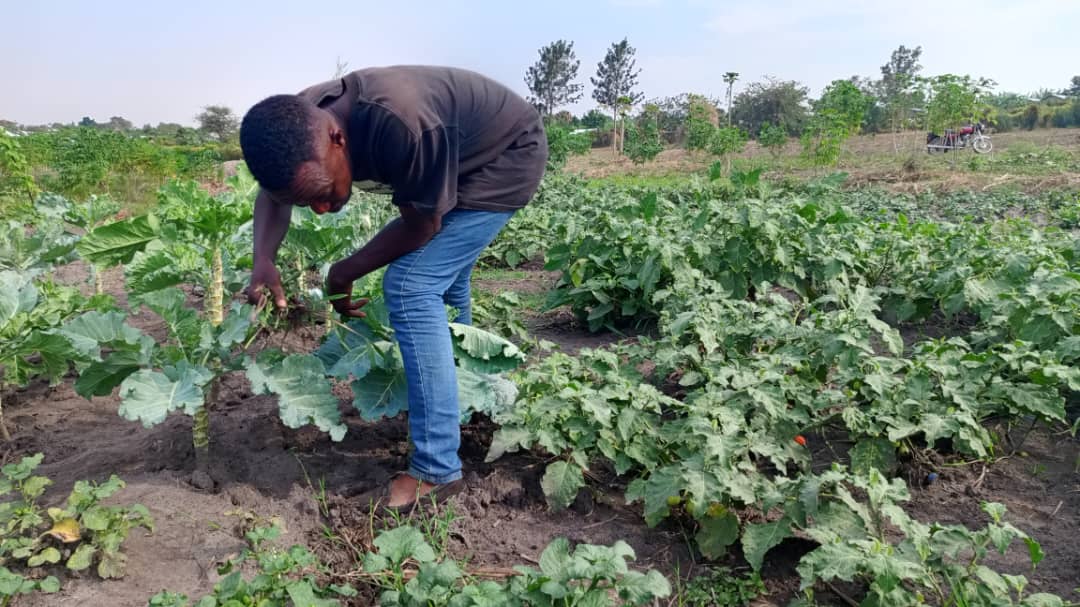From Refugee to Farmer: How Training Transformed Bagyema Syliaque’s Life in Nakivale.
In the heart of Uganda’s Nakivale Refugee Settlement, resilience and hope often grow in unexpected places. For Bagyema Syliaque, a refugee from the Democratic Republic of Congo and a member of the Ubumwe group in Nyarugugu “C,” that hope now grows in his garden—lush rows of cabbage, sukuma wiki, and African eggplant.
When Bagyema first arrived in Nakivale, like many refugees, he struggled to rebuild his life and provide for his family. Farming was not new to him, but maximizing productivity in the limited land and challenging conditions of a settlement required new skills. This turning point came when Shared Action Africa, an organization dedicated to empowering refugees and vulnerable communities, introduced agricultural training programs.
“I had no idea that farming could change my life this way,” Bagyema recalls. “Shared Action Africa trained me on how to plant cabbages, sukuma wiki, and eggplants. I mastered the skills, and now I harvest enough not only to feed my family but also to sell and make money.”
The results speak volumes. Bagyema currently earns over UGX 550,000 (approximately USD 150) per month from his harvest. This income, though modest by global standards, has been transformative in the context of refugee life. With his earnings, Bagyema pays school fees for his children, buys household necessities, and ensures his family has access to nutritious meals.
“I don’t regret joining this program,” he says with a smile. “My family eats enough greens and food every day. We always have sauce to serve with our meals, and I have money to cater for their needs. Shared Action Africa came into my life as a blessing.”
Beyond improving his own household, Bagyema’s success story highlights the broader impact of agricultural training in refugee settlements. Refugees often face dependency on aid, limited economic opportunities, and food insecurity. By equipping individuals like Bagyema with practical skills and resources, organizations such as Shared Action Africa foster resilience, independence, and dignity.
Agricultural empowerment also creates ripple effects in the community. Fresh produce like cabbage, sukuma wiki, and African eggplant are not only consumed by families but also sold in local markets, contributing to food security and stimulating small-scale trade in the settlements. This helps refugees shift from being aid recipients to active contributors to local economies.
The importance of such initiatives cannot be overstated. According to the United Nations High Commissioner for Refugees (UNHCR), Uganda hosts over 1.5 million refugees, with settlements like Nakivale being home to thousands. Ensuring their self-reliance through agriculture and livelihood projects is key to both survival and long-term development.
For Bagyema, the transformation is deeply personal. From uncertainty to stability, from dependence to self-sufficiency, his garden is more than just a source of income—it is a symbol of hope.
“Farming has given me dignity,” he concludes. “I can stand proud knowing I provide for my children and my family. Shared Action Africa showed me the way, and for that, I will always be grateful.”

